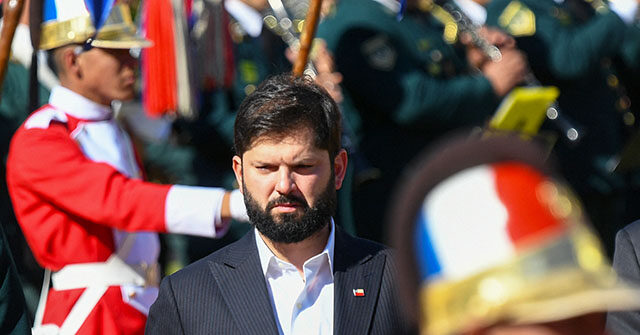Chilean President Gabriel Boric is currently under investigation by prosecutors for accusations related to the unlawful dissemination of intimate images. This legal probe stems from a sexual harassment complaint lodged by an unnamed woman in September, concerning incidents alleged to have taken place between 2013 and 2014. The Chilean government confirmed the existence of this complaint, indicating that it is based on events that occurred over a decade ago when Boric was still practicing law in Punta Arenas. As of now, the investigation remains under strict confidentiality measures, which prevents detailed disclosures about the case from being made public.
In response to the allegations, Boric has denied any wrongdoing through his lawyer, Jonatan Valenzuela. The lawyer contends that the president is actually a victim of a harassment scheme orchestrated by the accusing woman. Boric’s legal team has taken steps to defend him by submitting 25 emails that were allegedly sent from the woman to Boric during the timeframe of the purported incidents. The defense argues that these emails contain explicit content supporting their claim that the president was the one being harassed, not the harasser.
The allegations made against Boric are further complicated by the nature of the accusations. Prosecutor Cristian Crisosto confirmed that Boric is now a defendant in the investigation but noted that the focus is specifically on potential charges of unlawful dissemination of intimate images rather than on sexual harassment. The legal parameters for the case include strict confidentiality, and as such, the prosecutor has indicated that several proceedings are still pending. This restricted information flow creates an atmosphere of uncertainty as the case unfolds.
The woman making the allegations described her suffering as part of a broader campaign against her and claimed that this issue is about more than just Boric. She disclosed that her intimate images appeared online without her consent and asserted that this incident has caused her significant emotional distress. She believes that Boric is implicated due to the context of their previous professional relationship, as the images were allegedly stored on a USB drive that inexplicably went missing from her workspace over ten years ago. This assertion implies that the president could potentially have had access to those images.
The legal implications of the allegations against Boric are serious, as the crime of unlawful dissemination of intimate images carries a sentence ranging from 61 to 540 days in prison or fines totaling between 330,000 – 660,000 Chilean pesos (approximately $330-660). As the case evolves, the woman claims to have experienced hacking targeting her by individuals connected to Boric, vehemently denying any suggestion that she sent explicit images to him. Meanwhile, she indicated that the ongoing investigation might also encompass the wider context of sexual harassment beyond the single allegations made against Boric.
Additionally, the complicating factors do not end with Boric’s claims. Reports indicate that the woman has a criminal history, with allegations involving domestic violence, public disorder, and robbery. However, her advisor, Jaime García, stated that her past criminal record should not undermine the validity of her complaint against Boric. Overall, the situation is dynamic, involving urgent legal actions that intertwine personal history, public service, and complicated allegations of harassment and privacy violations. As the investigation proceeds, all parties involved face mounting public scrutiny, and the ramifications of these claims will extend well beyond individual reputations.

